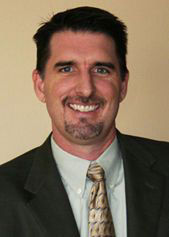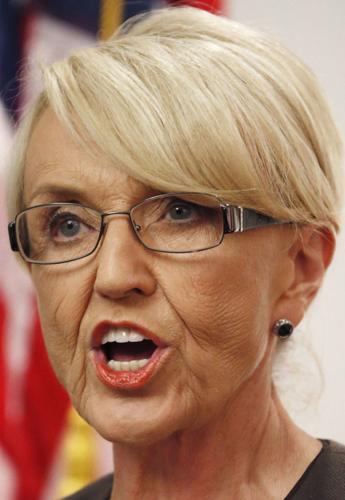PHOENIX — An attorney for some state lawmakers warned a judge Thursday that a constitutional limit on tax hikes would be shredded if he allows a levy on hospitals to fund an expanded Medicaid program to stand.
“The voters added Proposition 108 to the Arizona Constitution on the constraint on the Legislature’s power to collect money,” said Christina Sandefur. It says that new taxes or tax increases need a two-thirds vote of both the House and Senate to take effect.
And Sandefur told Maricopa County Superior Court Judge Douglas Gerlach it was meant to be airtight, with the supermajority required even in cases of emergency. More to the point, she said it has to apply to a 2013 vote that let the head of the state’s Medicaid program assess hospitals $270 million to pay for the state’s share of expanding the program and adding 350,000 people to the health-care rolls.
“To exempt the provider tax here really creates a serious loophole,” Sandefur said. And she said that loophole is not closed because lawmakers left it up to Tom Betlach, head of the state’s Medicaid program, to determine how much to raise and who to exempt.
“It allows the Legislature to give ultimate discretion to an unelected, appointed administrator,” she said.
But Douglas Northup, representing the Ducey administration, told Gerlach that the levy is not a tax but simply a fee. And he said the 1992 voter-approved constitutional amendment does not apply to fees.
What makes the difference, Northup said, is that a tax applies pretty much across the board. By contrast, he said, this levy is being imposed on just 97 hospitals.
And he said the levy has one other trait that makes it a fee: It benefits those who are paying it.
Northup acknowledged that the 350,000 Arizonans who are now getting care they did not have prior to expansion certainly are beneficiaries. About 1.7 million people are now enrolled in the Arizona Health Care Cost Containment System, the state’s Medicaid program.
But he said the expansion was designed mainly to help the hospitals that said they were losing money because so many people were showing up at their doors without insurance or private funds to pay for care. More people with insurance, Northup said, means more money for hospitals.
State officials pegged the benefit to hospitals at $407 million, far more than they are paying.
What Gerlach decides to call the charge will determine whether the state can continue to collect it.
The Ducey administration needs the judge to call it a fee to uphold the 2013 vote enacting it. That’s because it had the support of only a majority of lawmakers, short of the two-thirds vote the Arizona Constitution demands for a tax.
Lawmakers on the losing end of that vote — enough of them to deny that two-thirds margin — then filed suit, accusing their colleagues in the majority of ignoring the constitution.
Last year, over former Gov. Jan Brewer’s objections, the Arizona Supreme Court ruled the dissident lawmakers do have a right to sue. Justice Rebecca White Berch, writing for the unanimous court, said if the levy is a tax, their votes — and veto power — were effectively and illegally nullified.
Gerlach said he could rule as early as this coming week on whether he believes the levy is truly a tax. But even the judge acknowledged that whichever side loses is virtually certain to appeal.
The legal fight stems from a 2004 voter-approved law that requires AHCCCS to provide free care to virtually everyone below the federal poverty level.
But Brewer and state lawmakers, facing a budget crunch, decided in 2011 to no longer provide coverage for single adults. Legal challenges to that decision went nowhere.
In 2013, however, Brewer figured out that Arizona could get money through the federal Affordable Care Act to restore coverage for the 60,000 single adults who had been cut.
But Arizona also had to expand the program to ensure everyone earning up to 138 percent of the federal poverty level, or about $27,000 for a family of three, could enroll, adding perhaps another 250,000.
Even with the federal dollars, though, there was still a cost to the state.
So Brewer crafted the law to let Betlach levy what she called an “assessment” on hospitals to pay that share. That plan was approved with just the simple majority of Democrats and a few Republicans.
Most of the legislators voting against the plan, all Republicans, filed suit. They argued the assessment was a tax, making the simple majority vote unconstitutional.
Brewer first tried to kill the lawsuit by arguing that the only ones entitled to contest the legality of the assessment — and the lack of a two-thirds vote — were the hospitals themselves.
The hospitals, however, had no financial incentive to object. That’s because Betlach designed the levy so that no hospital chain would pay more than what it would gain by more of its patients having health insurance — every hospital chain would make money.








